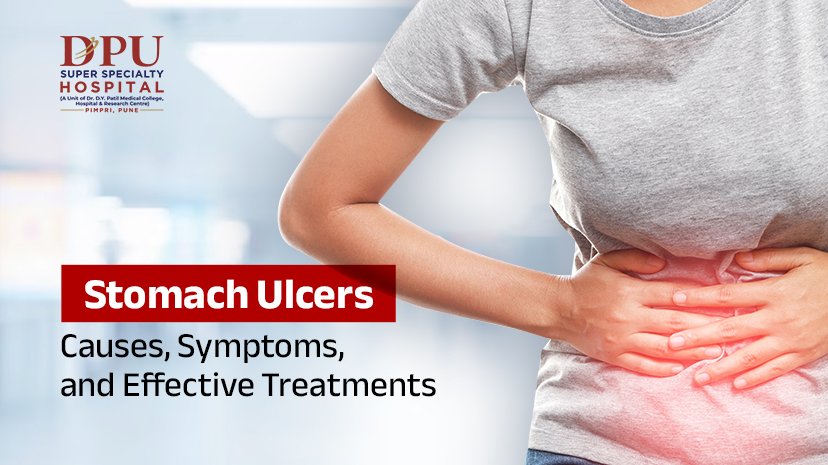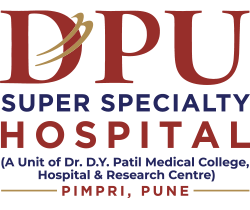Stomach Ulcers: Causes, Symptoms, and Effective Treatments

Stomach ulcers, also known as peptic ulcers, are open sores that develop on the lining of the stomach or the upper part of the small intestine. While they can be quite painful, with the right care and lifestyle adjustments, they can be managed. In this blog, we will explore the causes of stomach ulcers, the symptoms to watch for, and the most effective treatments available today, including medications, dietary adjustments, and lifestyle changes.
1. What Causes Stomach Ulcers?
Stomach ulcers develop when the protective mucus lining of the stomach or duodenum is damaged, enabling stomach acid to cause ulcers. Several factors contribute to the formation of ulcers:
- Helicobacter pylori Infection: This bacterial infection is one of the most common causes of stomach ulcers. H. pylori bacteria can weaken the stomach’s protective lining, allowing it to be easily damaged by stomach acids.
- Frequent Use of Nonsteroidal Anti-Inflammatory Drugs (NSAIDs): Medications such as aspirin, ibuprofen, and naproxen can irritate the stomach lining and increase the risk of ulcers when taken frequently or in large doses.
- Excessive Alcohol Consumption: Drinking alcohol excessively can damage the stomach’s lining, leading to ulcer formation.
- Stress: While stress alone doesn't directly cause ulcers, it can exacerbate symptoms and affect the healing process.
- Smoking: Smoking can impair the stomach’s ability to protect itself from acid, increasing the risk of ulcers.
2. Recognizing the Symptoms of Stomach Ulcers
Stomach ulcers can show up in several ways, and the symptoms may vary depending on the severity of the ulcer. Some of the common signs to watch for include:
- Abdominal Pain: The most common symptom, this pain is often described as a burning or nagging pain in the stomach area. It may come and go and is often felt between meals or during the night.
- Bloating and Fullness: People with ulcers may experience bloating, feeling excessively full after consuming minimal food.
- Nausea and Vomiting: Ulcers can cause nausea, this may be followed by vomiting, particularly if the ulcer is severe or bleeding.
- Loss of Appetite: A decrease in appetite is common, typically due to the distress caused by the ulcer.
- Dark or Tarry Stools: This could be an indication of bleeding within the stomach, which is a serious complication of ulcers and requires immediate medical attention.
- Unexplained Weight Loss: Weight loss can occur when eating becomes painful or difficult due to ulcers.
If you experience any of these symptoms, it is important to seek medical attention to confirm whether you have an ulcer and to begin appropriate treatment.
3. Effective Treatments for Stomach Ulcers
While stomach ulcers can be serious, modern treatments can effectively manage the condition, promote healing, and prevent complications. Below are the most common treatment methods:
Medications:
- Proton Pump Inhibitors (PPIs): These drugs, such as omeprazole, reduce stomach acid production, helping the ulcer heal and alleviating pain.
- Antibiotics: If H. pylori infection is the cause, your doctor may prescribe a combination of antibiotics to eradicate the bacteria and prevent the ulcer from recurring.
- Antacids and H2-receptor antagonists: These medications help to neutralize stomach acid or reduce acid production, offering relief from ulcer pain.
- Protective Medications: Medications like sucralfate help coat the ulcer, providing protection from stomach acid and allowing healing.
Dietary Adjustments:
- Avoid Irritants: Spicy foods, caffeine, alcohol, and acidic foods can aggravate ulcers, so it’s important to avoid them during the healing process.
- Eat Small, Frequent Meals: Eating smaller meals throughout the day can help reduce stomach acid production and provide comfort.
- Incorporate Soothing Foods: Foods like oatmeal, bananas, and yogurt are gentle on the stomach and can help reduce irritation.
- Stay Hydrated: Drinking plenty of water throughout the day helps support digestion and the healing process.
Lifestyle Changes:
- Quit Smoking: Smoking reduces the stomach’s ability to heal itself, so quitting is crucial for ulcer treatment and prevention.
- Limit Alcohol: Alcohol can harm the stomach lining by causing irritation and worsen symptoms, so cutting back or avoiding it altogether is recommended.
- Reduce Stress: While stress doesn’t directly cause ulcers, it can worsen symptoms. Practicing relaxation techniques like yoga, meditation, or deep breathing exercises can help reduce stress levels and promote healing.
4. When to Seek Medical Help
In most cases, stomach ulcers can be managed effectively with the right treatment. However, there are times when urgent medical attention is required, such as when:
- You experience sudden, severe abdominal pain.
- You notice blood in your vomit (which may look like coffee grounds) or stools (which may be dark and tarry).
- You have difficulty swallowing or experience significant weight loss.
These symptoms may indicate a more serious condition, such as bleeding, crack, or obstruction, and require immediate medical intervention.
Conclusion
Stomach ulcers can be a painful and uncomfortable condition, but with proper treatment, they are manageable and can heal over time. Identifying the symptoms early, following medical advice, and making lifestyle and dietary adjustments are key steps in managing ulcers effectively. If you suspect you have an ulcer, don't hesitate to consult a healthcare professional for an accurate diagnosis and a treatment plan tailored to your needs. With the right care and precautions, you can prevent complications and improve your digestive health.








